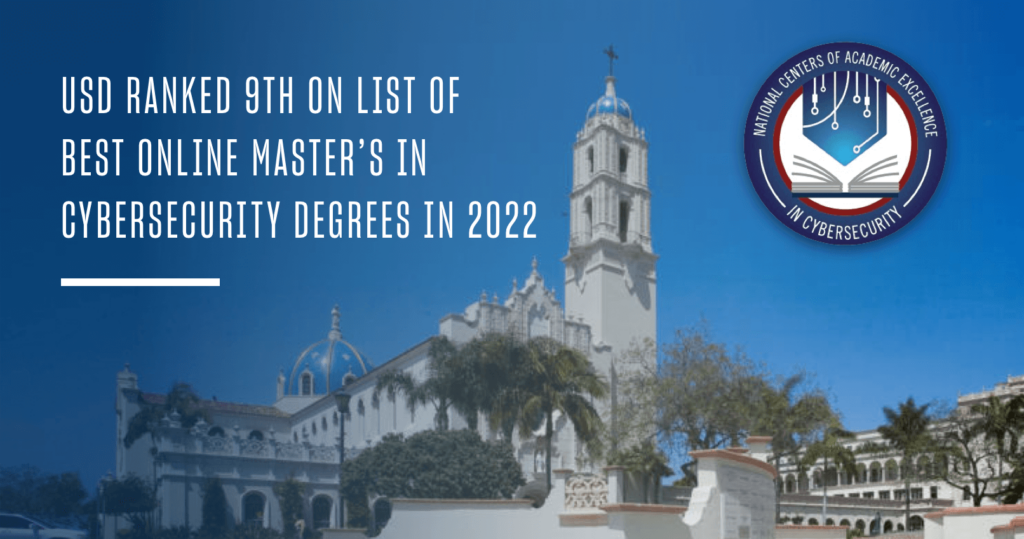So, you work in cybersecurity or a related field and want to move up the ladder to a more prominent, better paying position. You’ve decided that your experience combined with a master’s degree is the best path to your dream job — but which master’s degree will be the most impactful and appealing to employers? For those in cybersecurity, the choice often comes down to a Master of Science in Cybersecurity or a Master of Business Administration (MBA).
What Is A Master of Business Administration?
A Master of Business Administration (MBA) is a postgraduate degree that covers varying aspects of business, including accounting, finance, marketing and economics. If you’re considering a new career in cybersecurity, or want to advance in the field, an MBA with a concentration in technology could be a good option. This type of program will help you gain important management skills, while ensuring you stay up-to-date with evolving trends in information systems security.
However, if you know you want a career in cybersecurity and are looking to give yourself a competitive edge over other job-seekers, an MBA might not offer enough of a boost. If you already work in the cybersecurity field and want to obtain a high-level position, you’ll need to supplement your MBA with on-the-job experience and cybersecurity certifications.
If you want to keep your options open and aren’t ready to fully commit to a career in cybersecurity, an MBA offers greater flexibility. An MBA is not as specialized as other degrees, such as a Master of Science in cybersecurity, and you can apply the skills you acquire in an MBA program to a broad array of fields.
[FREE GUIDE] Eight Important Considerations for Getting a Cybersecurity Degree
What Is a Master of Science in Cybersecurity?
A Master of Science in Cybersecurity is designed to equip you with knowledge, skills and expertise needed to secure high-level roles in the field, many of which offer competitive salaries and benefits, job security and high rates of job satisfaction. In addition to cybersecurity fundamentals, such as network security, cryptography and incident response, some programs also offer leadership training to help you climb the career ladder. Experts say there is a strong demand for cybersecurity professionals, but not enough skilled individuals to meet that demand. By the end of 2023, there were nearly 600,000 unfilled cybersecurity jobs in the U.S. and about 3.5 million cybersecurity roles available across the world.
[RELATED] 10 Reasons Why a Cyber Security Degree is Worth It >>
There are a few key differences between an MBA and a master’s degree in cybersecurity, starting with their area of focus. A cybersecurity program will hone in on computer science and information systems, while an MBA will be primarily focused on business policy, practice and leadership.
See What a Cybersecurity Masters Program Looks Like for Working Professionals
The Best of Both Worlds
What if you wanted both the business acumen an MBA program can offer and the technology-specific skills needed to specialize in cybersecurity? Fortunately, you don’t have to choose.
For those looking to combine the leadership and management aspects of an MBA with the technical, theoretical and tactical components of a cybersecurity degree, your best option may be a master’s degree in Cyber Security Operations and Leadership. This degree builds on your bachelor’s degree and field experience to provide a deeper understanding of the tools and tactics for combating cybercrime, plus leadership and management skills specific to the cybersecurity field.
Review these side-by-side comparisons to learn more about the differences between each program, as well as valuable information about the fields.
CAREERS BY DEGREE
The following chart lists possible careers and projected salaries for candidates with respective degrees. Salary and earnings are always subject to individual employers, location and additional factors.
| MBA | Master of Science in Cybersecurity |
| Business Operations Manager ($67,782) Financial Planning Manager ($103,126) Director of Finance ($126,342) IT Director ($119,558) Cloud Architect ($134,093) | Penetration Tester ($102,000+) Information Security Analyst ($103,590) Computer and Information Research Scientist ($136,620) Chief Information Security Officer ($170,000+) Chief Privacy Officer ($240,000) |
*Salary estimates from employment sites such as the U.S. Bureau of Labor Statistics, Linkedin, Glassdoor, ZipRecruiter, Indeed, etc. Estimates often update in real time based on changing data.
COURSEWORK COMPARISON
These cybersecurity courses are specific to the University of San Diego. MBA courses are a compilation of different program offerings.
| MBA | Master of Science in Cybersecurity |
| Business Ethics Strategy Operations Management Business Analytics and Data Science Organizational Behavior and Teamwork | Foundations of Cybersecurity Applied Cryptography Enterprise Security Architecture Cybersecurity Law and Policy Software Design and Development |
INDUSTRY DEMAND
| MBA | Master of Science in Cybersecurity |
| Business and financial roles often requiring an MBA are projected to grow faster than the average for all occupations. Exact growth projections vary by industry and job position. | Cybersecurity jobs are projected to grow 32% in the 10-year span from 2022 to 2032; much faster than the average for all occupations, which is 3% |
Based on projections from the U.S. Department of Labor Statistics
[FREE GUIDE] Eight Important Considerations for Getting a Cybersecurity Degree
Other Degree Options to Explore
Of course, an MBA or master’s in cybersecurity are not your only options. If you’re looking to begin or to further your career in information technology, here are some other degree programs you might consider:
- MS in Computer Science
- MS in Computer Engineering
- MS in Information Assurance
- MS in Information Technology
If you’re trying to decide between degree programs that focus on cybersecurity, carefully consider what each program offers and how it aligns with your own educational and professional goals.
The University of San Diego offers two innovative cybersecurity graduate degree programs — the online Master of Science in Cyber Security Operations and Leadership and the online or on-campus Master of Science in Cyber Security Engineering — both designed to be completed in as little as 20 months.
Citations
- MBA.com, “MBA Jobs: What Can You Do with an MBA?, https://www.mba.com/business-school-and-careers/career-possibilities/mba-jobs-what-can-you-do-with-an-mba“
- CNBC, “Companies have an ‘incredible need’ for this in-demand skill, says Google exec—and it pays over $100,000 a year, https://www.cnbc.com/2023/11/24/companies-have-an-incredible-need-for-this-in-demand-skill-says-google-exec.html“





